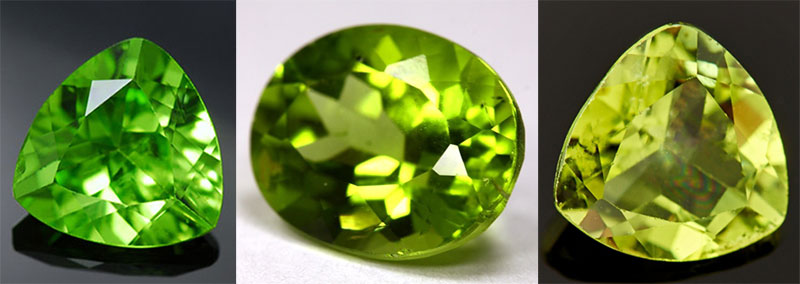Chrysolite gemstone
Home ➤ Encyclopedia of gems ➤ Chrysolite gemstonePhysical properties of chrysolite
| Hardness: | 6.5-7 out of 10 on the Mohs scale |
| Luster: | glass |
| Transparency: | transparent |
| Color: | olive green, yellow green, brownish green, lime green |
Characteristics of chrysolite
The name "chrysolite" (dragon stone, peridot) in Greek means "golden stone". Since ancient times, this name has meant beryls, tourmalines (the so-called "Brazilian chrysolites"), garnets (a rare variety of transparent andradite garnet was called Siberian or Ural chrysolite), corundum, topaz, which had a golden (or golden green) color. Now, under the name "chrysolite", olivines most often appear, which are also known under another name - peridot.

In general, the situation with this stone is very difficult. However, almost everywhere now the names "chrysolite" and "peridot" mean the same gem.
Chrysolite is a very valuable gemstone that has a special golden, golden yellow, rarely golden green color. Although there are chrysolites of olive or pistachio color.
How much is chrysolite
Chrysolite suitable for jewelry cutting is very rare, so little is known about this gemstone. But the prices for chrysolite are very low - beads made of very small stones can be bought for $ 5. The bulk of chrysolites going on sale is estimated at no more than $5. Only good quality stones over 5 carats are priced higher, although still inexpensive - from $20.
| ★ Aventurine gemstone | |
| See also: | ★ Zircon gemstone |
| ★ Almandine gemstone |





